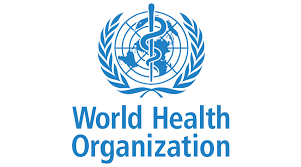
World Health Organization
nearmejobs.eu

Job Description
<!–
Description
–>
The mission of WHO’s Health Emergencies Programme (The Programme) is to build the capacity of Member States to manage health emergency risks and, when national capacities are overwhelmed, to lead and coordinate the international health response to contain outbreaks and to provide effective relief and recovery to affected populations. The Health Emergency Intelligence and Surveillance Systems division (WSE) is responsible to build a system of collaborative intelligence enabling better decisions to avert and manage public health threats and risks. Its goal is to enable, strengthen and support countries, regional and global actors in averting and managing public health threats and risks through collaborative problem-solving and decision-making for short-term action and long-term policies, informed by better data and analytics. The WHO Hub for Pandemic and Epidemic Intelligence is a new office of WHO, located in Berlin. It works with partners to enable the generation of public health relevant information to provide timely actionable insights and improve decision-making to prepare for, avert and respond to public health threats. It also aims to reduce fragmentation and inefficiency by creating an ecosystem that promotes collaboration across multiple professional disciplines, sectors, and initiatives; and empowers decision-makers, public health professionals, and civil society to make informed public health decisions.
Duties:
Within the framework of the delegated authority, the incumbent is assigned all or part of the following duties which are performed according to needs:
- Coordinate priorities for analysis relevant to pandemic and epidemic intelligence and engagement with relevant communities.
- Provide specialist technical expertise and guidance in data science principles and methods, including but not limited to advanced analysis, spatial analysis, federated analysis, graph-powered analysis, and machine learning.
- Coordinate the analysis and pipelines from different available data and develop and improve outputs to communicate the results.
- Coordinate the development and implementation of state-of-the-art analysis-sharing and dissemination strategies along the identified priorities.
- Oversee and guide the systematic documentation of code and analytic approaches to ensure information sharing with inside and outside collaborators.
- Research, create, and validate algorithms as required for epidemic and pandemic intelligence within the team’s scope and mandate.
- Connect and collaborate with staff at all levels in The Programme, WHO HQ, Regional and Country Offices, as well as countries and partners to encourage data and analysis-sharing as key component of promoting and nurturing a culture of multi-disciplinary and cross-cutting approaches within The Programme, WHO and with key partners.
- Perform other related responsibilities as assigned, including replacing and backstopping for others as required.
Required Qualifications:
Education:
Essential:
- Advanced university degree (Master’s level) in data science, epidemiology, demography, statistics, health sciences, or a related discipline that includes quantitative methods.
Experience:
Essential:
- At least 7 years of experience in advanced data analysis, including modeling and machine learning, developing and using quantitative methods in infectious diseases. Experience in conducting joint analysis, sharing code on different platforms and documenting outcomes. Experience in visualizing the results. Demonstrated exposure at international level.
Skills:
- Proven ability to conduct quantitative data analysis, including mathematical modeling in emerging/re-emerging diseases with machine learning components in a multi-disciplinary and cross-cutting environment.
- Proven ability to visualize interactively the results of further analysis.
- Excellent organizational and data management skills combined with the ability to multi-task and produce accurate results under pressure.
- Excellent interpersonal skills, complemented by the ability to synthesize information clearly and concisely.
- Tact, diplomacy, and courtesy.
Language Skills:
Essential:
- Expert knowledge of English.
Source: https://careers.who.int/careersection/ex/jobdetail.ftl?job=2401851
<!—
Recommend your friend
<!–
–>
Essential:
To help us track our recruitment effort, please indicate in your cover/motivation letter where (nearmejobs.eu) you saw this job posting.
Related Jobs
-

customer & logistics support manager (f/h)
RandstadMéru, OiseMéru, Oise -

Chargé(e) Marketing Digital Web – (en Alternance) — H/F
My-Marketing RHVersailles, YvelinesVersailles, Yvelines -

Consultancy – External Review of the Gender-based Violence Information Management System (GBVIMS) Global Inter-Agency Initiative, Humanitarian Response Division
United Nations Population FundNew York City, NYNew York City, NY- Contract
-

Senior Sales Manager – Les Numériques F/H
Reworld MediaBoulogne-Billancourt, Hauts-de-SeineBoulogne-Billancourt, Hauts-de-Seine